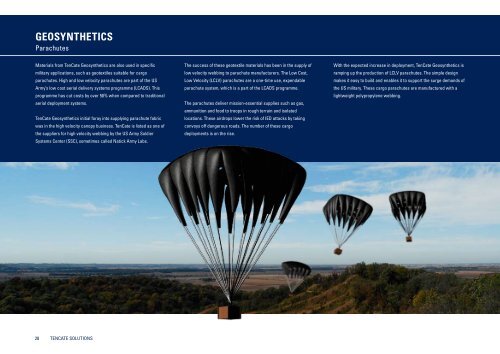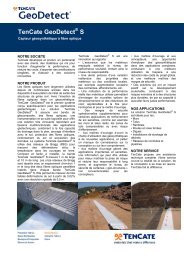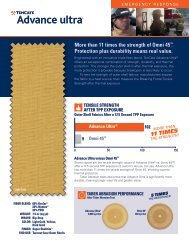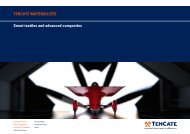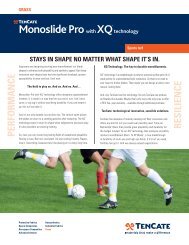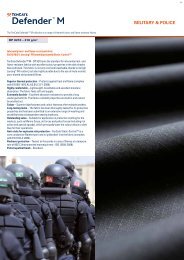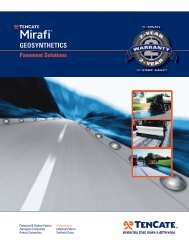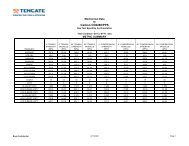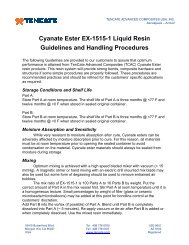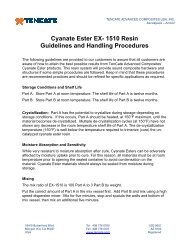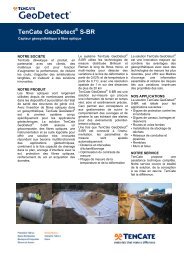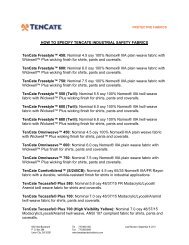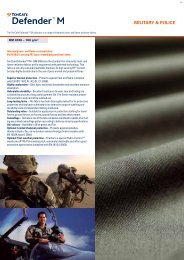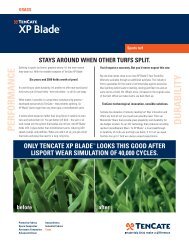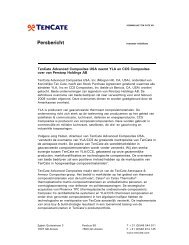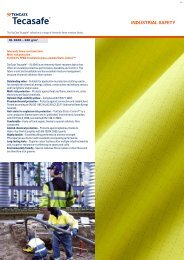proTeCTive faBriCS - TenCate
proTeCTive faBriCS - TenCate
proTeCTive faBriCS - TenCate
Create successful ePaper yourself
Turn your PDF publications into a flip-book with our unique Google optimized e-Paper software.
geoSynTheTiCS<br />
Parachutes<br />
Materials from <strong>TenCate</strong> Geosynthetics are also used in specific<br />
military applications, such as geotextiles suitable for cargo<br />
parachutes. High and low velocity parachutes are part of the US<br />
Army’s low cost aerial delivery systems programme (LCADS). This<br />
programme has cut costs by over 50% when compared to traditional<br />
aerial deployment systems.<br />
<strong>TenCate</strong> Geosynthetics initial foray into supplying parachute fabric<br />
was in the high velocity canopy business. <strong>TenCate</strong> is listed as one of<br />
the suppliers for high velocity webbing by the US Army Soldier<br />
Systems Center (SSC), sometimes called Natick Army Labs.<br />
28<br />
TENCATE SOLUTIONS<br />
The success of these geotextile materials has been in the supply of<br />
low velocity webbing to parachute manufacturers. The Low Cost,<br />
Low Velocity (LCLV) parachutes are a one-time use, expendable<br />
parachute system, which is a part of the LCADS programme.<br />
The parachutes deliver mission-essential supplies such as gas,<br />
ammunition and food to troops in rough terrain and isolated<br />
locations. These airdrops lower the risk of IED attacks by taking<br />
convoys off dangerous roads. The number of these cargo<br />
deployments is on the rise.<br />
With the expected increase in deployment, <strong>TenCate</strong> Geosynthetics is<br />
ramping up the production of LCLV parachutes. The simple design<br />
makes it easy to build and enables it to support the surge demands of<br />
the US military. These cargo parachutes are manufactured with a<br />
lightweight polypropylene webbing.


